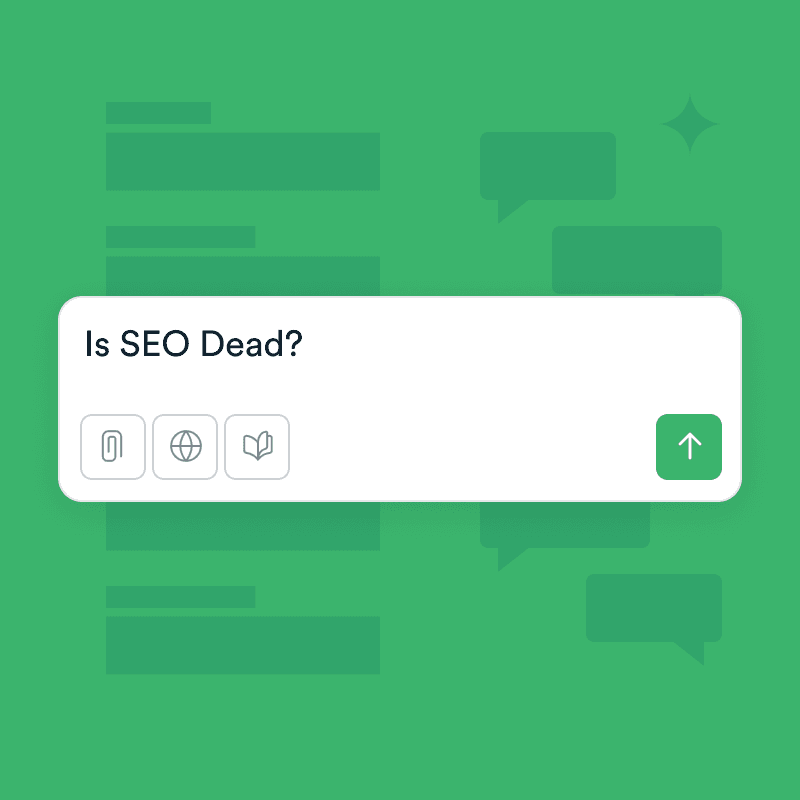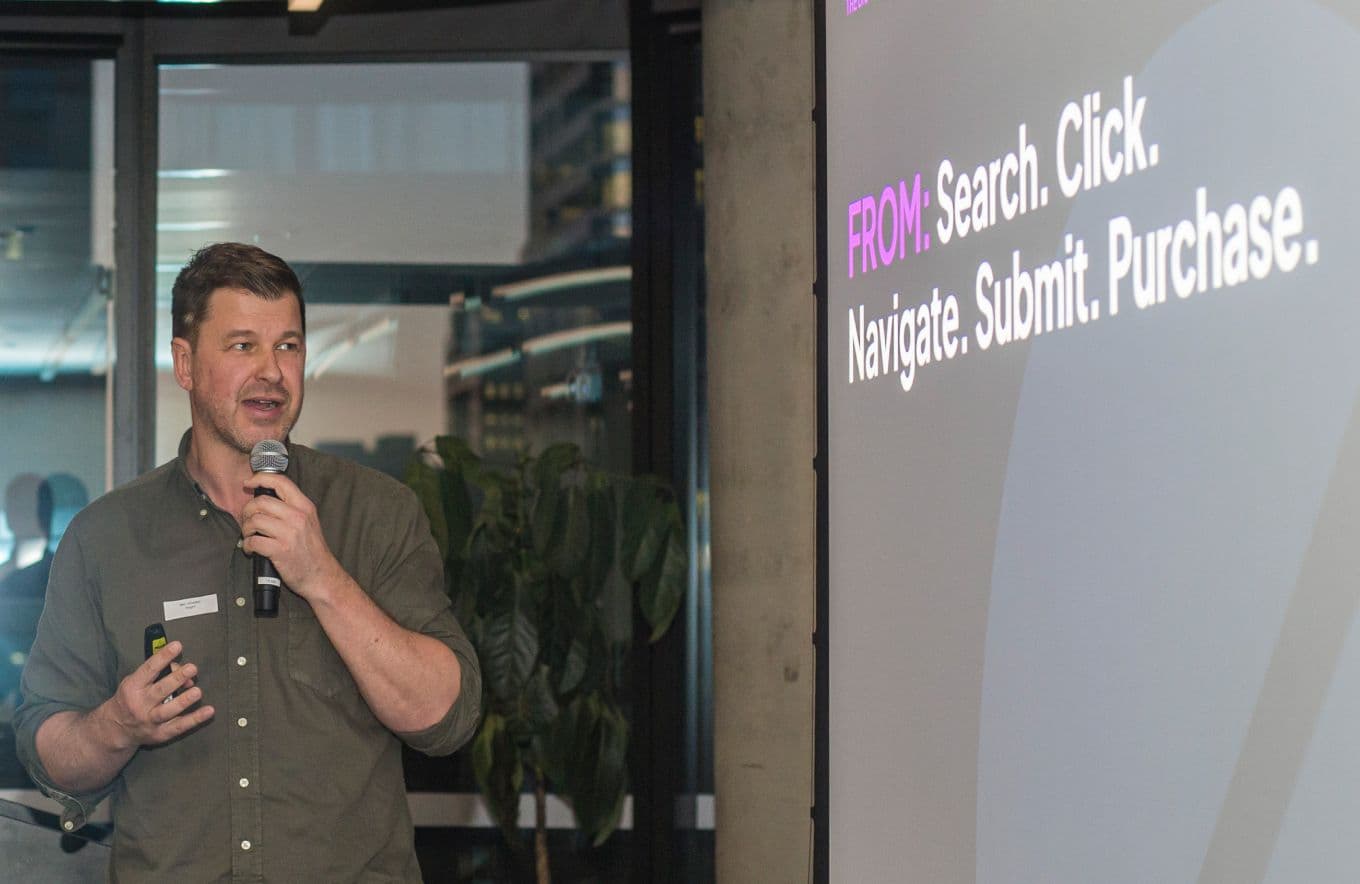
The web as we know it is evolving and fundamentally changing how users choose to interact with it.
Last week at our AI Canvas event, we explored a significant shift in digital behaviour: while your traditional digital platforms remain important, a growing segment of customers are choosing alternative paths to engage with businesses. They're having conversations with AI instead of clicking through search results and navigating websites. They're delegating tasks to agents instead of interacting with digital products themselves.
This isn't necessarily about websites becoming obsolete, it's about new digital front doors to your business, opening up through AI platforms.
The speed of adoption is unprecedented
ChatGPT's growth has been remarkable, reaching 100 million users in just 2 months compared to Instagram's 2.5 years and Tiktok’s 9 months. It’s the fastest growing app in the history of the web. And with 22% of Australians using ChatGPT, we're seeing meaningful and rapid local adoption.
What's particularly interesting is the demographic spread. Roughly 14% of ChatGPT users are over 55, challenging assumptions about AI being purely a young person's domain. The technology is finding users across age groups, though adoption patterns vary significantly by use case and comfort level.
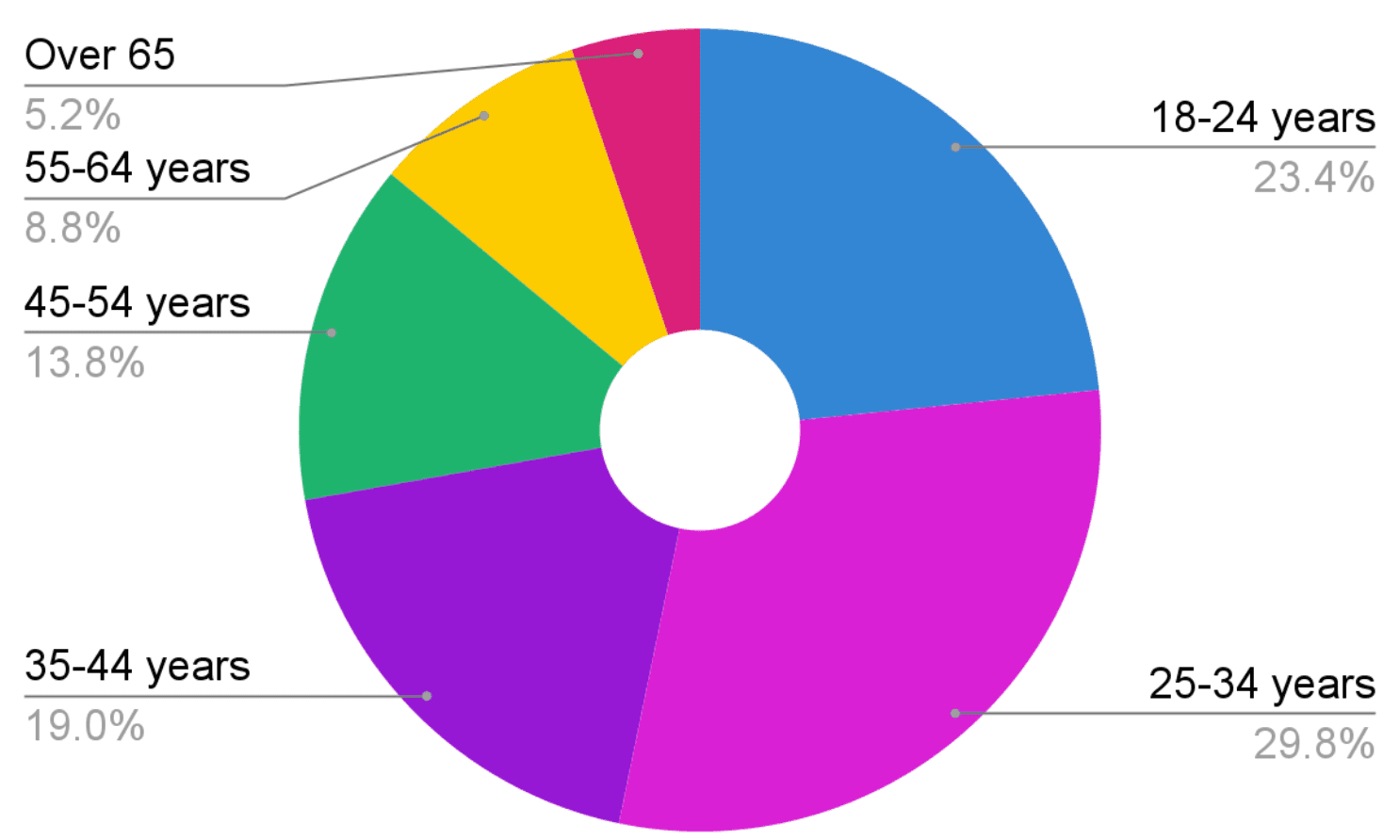
The daily query volume, 2.5 billion ChatGPT queries is substantial, yet still has a long way to go to catch up to Google's 16.4 billion daily searches. The data also suggests we're witnessing parallel search systems rather than AI search replacing traditional search.
The impact on organic traffic
Monday.com's experience offers an important case study. Their 25.3% decline in organic traffic, which they attributed to Google's AI overviews in their earnings call, demonstrates real impact. However, it's important to note that not all businesses are seeing similar declines, the effect varies significantly by industry, content type and user intent.

The rise of "zero-click searches" is well documented, with studies showing nearly 60% of Google searches ending without a click to external websites. This is largely due to the integration of AI overviews within search results.
On the positive side, companies like Vercel (10% of signups from ChatGPT) and Tally Forms (25% from AI) demonstrate there is a significant opportunity to capitalise on AI-driven search.
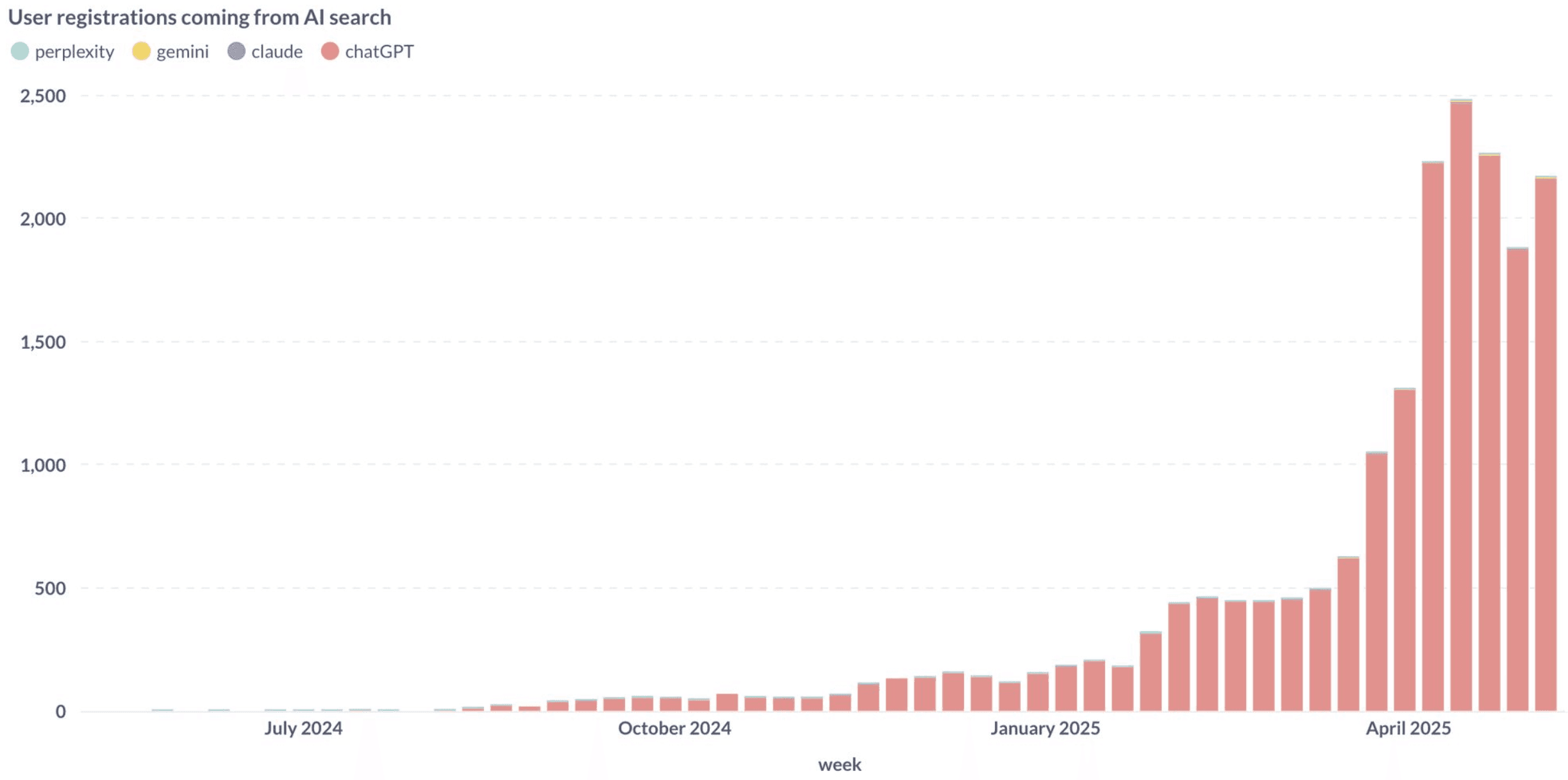
The reality of AI agents
AI agents have arrived en masse. Claude's computer use capability, Perplexity’s agentic browser Comet, Manus and others can navigate websites, fill in forms and make purchases on behalf of users.
Consider this real example from our presentation. To book a flight the traditional way requires navigating to an airline website, selecting dates, choosing flights, entering passenger details, selecting seats, adding extras, entering payment details. Dozens of clicks across multiple pages.
Using Comet’s browser? One instruction: "Find me a good value return flight from Melbourne to Sydney next Monday around 9am, departure time flexible. I will depart the following day around 4pm. I'll pay for extra leg room if available. No check-in luggage required. Take me to the booking confirmation and payment screen."
55 words. One prompt. Task complete.
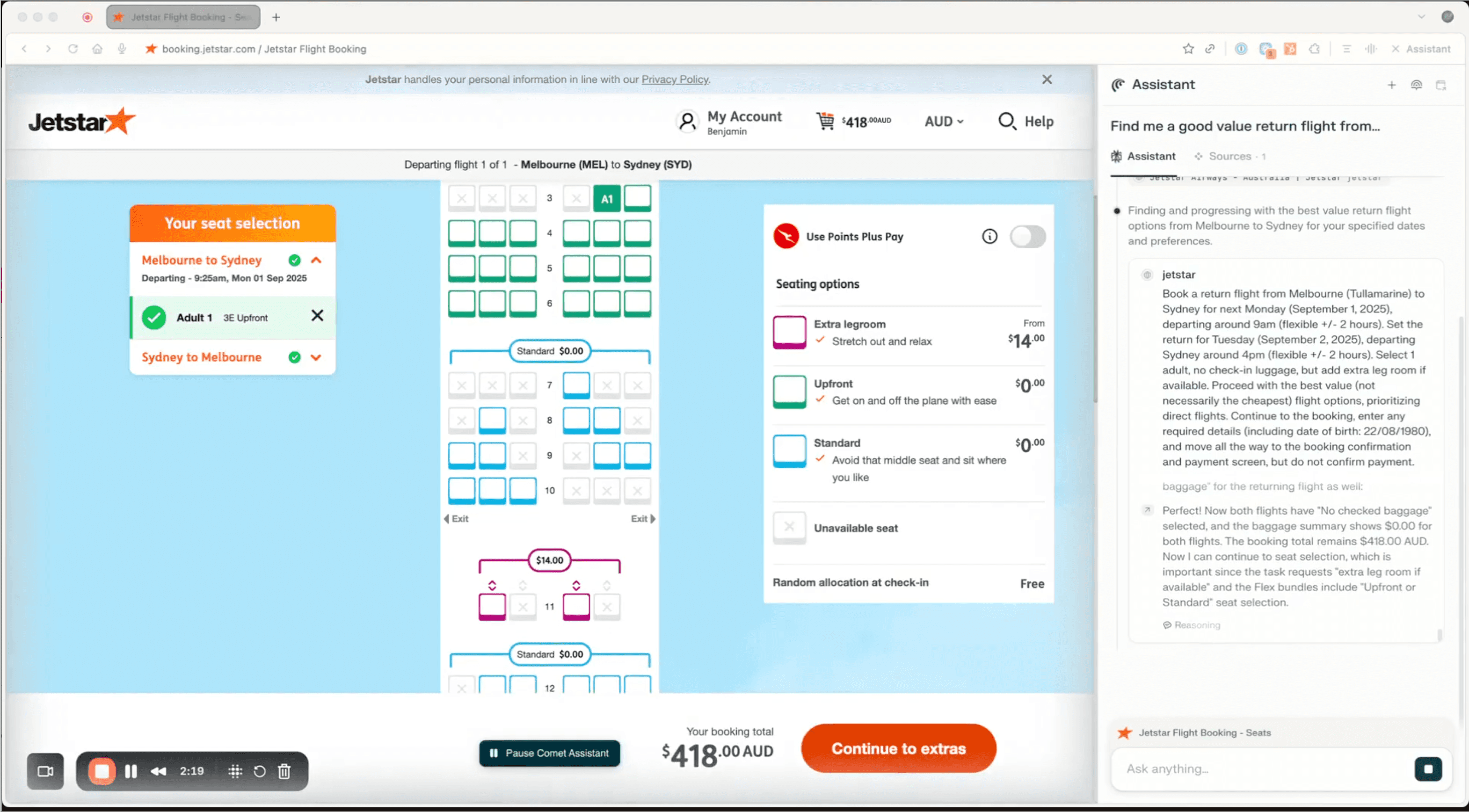
While AI browser agents offer remarkable convenience, they come with security risks. Anthropic's research found that malicious actors can hide instructions in websites to trick AIs into harmful actions, with a 23.6% attack success rate in testing. These "prompt injection" attacks can potentially cause AIs to delete files or make unauthorised transactions. Until stronger safeguards are developed, avoid using browser agents for financial, legal, or sensitive information.
The lesson: businesses should prepare for an agent- driven future. Treat AI agents as a new user persona in your design process. Test your critical user journeys with tools like Claude's computer use or Manus. Simplify complex multi-step processes that confuse agents. Remember, if an agent can't complete a task on your site, you're invisible to a growing segment of digital interactions.
With AI, voice becomes a powerful interface
The shift to conversational interfaces accelerates even more with voice. Consider these realities:
- Speaking: Avg 150 words per minute
- Typing: Avg 40 words per minute
- Voice works while driving, cooking, exercising—anywhere
- No manual, training, or barriers to entry required
- Supports real-time translation of languages
Voice interfaces don't require users to learn your navigation structure or understand your terminology. They simply ask for what they want in natural language. With voice, technology finally adapts to humans, not the other way around.
But it's not just consumer interactions being transformed. Voice AI is revolutionising business operations too. Lorikeet, an Australian startup, is reimagining the traditional call centre experience. Their universal AI concierge handles a complex customer service inquiry with natural conversation, context awareness and problem-solving capabilities that would typically require extensive human training.
If you're interested in hearing how Lorikeet are taking on Silicon Valley and winning, this video is a great watch!
Key takeaways for your business
- Multiple entry points are emerging
Your website remains important, but AI conversations and API interactions are growing as additional channels. - Search behavior is evolving
Traditional SEO still matters, but understanding how AI systems interpret and recommend your content is becoming a key consideration. - Technical architecture matters more
This isn't about scrapping your existing systems, but gradually evolving toward more flexible, API-accessible architectures where it makes business sense.
Practical steps you can take now
- Start with measurement
Tools like Profound and Evertune can help you understand your AI visibility. This data helps separate perception from reality. You might be performing better (or worse) than you think. - Test pragmatically
Try running AI agents through your critical user journeys, but prioritise based on your actual customer behavior. If your analytics show most users complete purchases successfully, agent optimisation might not be urgent. If you're seeing high abandonment rates, AI testing might reveal why. - Develop API-first thinking
Your APIs are becoming as important as your user interface. They need to be well-documented, easily discoverable and designed for programmatic and agentic access. Conscia provides a powerful platform to help you create secure agent-facing APIs. - Structure content for answers, not just keywords
AI systems need to understand what you do, not just match keywords. This means clear, structured data and comprehensive content that directly answers user questions.
The composability consideration
Composable architecture offers genuine advantages in this evolving landscape. Flexibility, API accessibility and easier integration with emerging technologies. However, the transition should be driven by business needs, not trend-following.
Companies built on rigid, monolithic platforms will struggle to adapt. Those with composable, API-first architectures can evolve with the changing landscape.
A measured perspective
We're witnessing significant change, but it's evolution, not revolution. Websites aren't dying, they're sharing space with new interfaces. SEO isn't dead, it's expanding to include AI optimisation. Traditional user journeys aren't disappearing, they're being supplemented with conversational alternatives.
The good news? The principles of good digital experiences still matter. Quality content, clear value propositions and genuine customer focus remain essential. But the interfaces through which we deliver these experiences are multiplying and evolving at unprecedented speed.
As we noted at AI Canvas, this isn't about replacing websites or abandoning everything we've built. It's about recognising that the digital front door to your business is no longer singular. It's about being present and accessible wherever and however your customers choose to engage, whether that's through clicks, conversations, or commands to their AI assistant.
Interested in exploring how these changes might affect your digital strategy?
The team at Inlight helps Australian businesses navigate digital transformation with practical, measured approaches. Reach out to discuss your specific context and opportunities.
About the Compose Event Series
Compose is Melbourne's premier event series exploring the intersection of composability, technology and business. For more information about upcoming events, follow us on LinkedIn or follow our Humanitix page.

